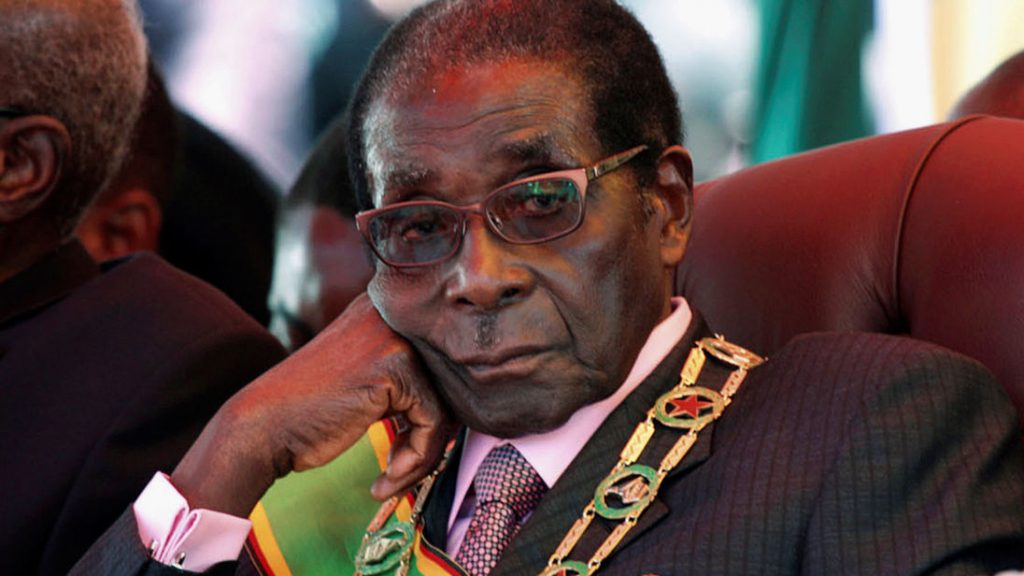Zimbabwean President Robert Mugabe has announced his resignation with immediate effect.
Wild celebrations broke out as a resignation letter was read out in the country’s parliament, where impeachment proceedings against the ruler had begun.
Mr Mugabe said he had chosen to step down “to ensure a smooth, peaceful and non-violent transfer of power”, adding that he made the decision voluntarily.
The announcement has sparked jubilant scenes in Zimbabwean capital Harare, where protesters had gathered to call for the 93-year-old to be removed from office.
Paul Mangwana, a senior official from ruling party ZANU-PF, has told Sky News that ousted vice president Emmerson Mnangagwa will be sworn in as President on Wednesday.
Earlier this month, Mr Mugabe sparked the political crisis which ended his dictatorship by sacking Mr Mnangagwa – paving the way for his wife Grace to succeed him.
Military chiefs reacted by taking control of the capital, seizing the state broadcaster and placing Mr Mugabe under house arrest.
The ruler initially refused to stand down and told Zimbabweans in a televised address they must “learn to forgive”.
But he was forced to face impeachment proceedings amid claims he allowed his wife “to usurp constitutional power” and had been seen “sleeping in cabinet and international meetings” – bringing “horror and shame” to Zimbabweans.
Mr Mugabe had ruled Zimbabwe since 1980 and his departure leaves the Queen as the world’s oldest head of state.
Under his presidency, the south African country’s economy collapsed and unemployment rose to more than 90%.
The 93-year-old has been accused of a range of human rights abuses, including denying food aid to areas supporting the opposition.
He has also faced repeated accusations of election vote-rigging and intimidation – in 2008 a violent campaign against supporters of opposition leader Morgan Tsvangirai saw scores killed and thousands displaced.
Chris Mutsvangwa, leader of Zimbabwe’s war veterans group, described Mr Mugabe’s resignation as “the end of a very painful and sad chapter in the history of a young nation, in which a dictator, as he became old, surrendered his court to a gang of thieves around his wife”.
Meanwhile, British Prime Minister Theresa May said it gave Zimbabwe the chance to “forge a new path free of the oppression that characterised his rule”.
She said: “In recent days we have seen the desire of the Zimbabwean people for free and fair elections and the opportunity to rebuild the country’s economy under a legitimate government.
“As Zimbabwe’s oldest friend we will do all we can to support this, working with our international and regional partners to help the country achieve the brighter future it so deserves.”


